
Željko J. Bošnjak, PhD
Medical College of Wisconsin, Department of Anesthesiology, Milwaukee, Wis, USAzbosnjak@mcw.edu
Dr Bošnjak is Professor at the Department of Anesthesiology, and Physiology Vice Chairman for Research. He is Director of Laboratory of Cellular Biology, Department of Anesthesiology and Professor of Physiology at the Medical College of Wisconsin. He received a PhD degree in Physiology also at the Medical College of Wisconsin in Milwaukee. Dr Bošnjak is an Associate Editor of the Cardiovascular and Thoracic Anesthesia Journal, Club Editor of Anesthesiology, reviewer for the American Journal of Physiology, Canadian Journal of Physiology and Pharmacology, Hypertension Brain Research, Croatian Medical Journal, and Anesthesia and Analgesia. He is also recipient of several awards, including New Investigator Research Award; B.B. Sankey Anesthesia Advancement Award; Republic of Croatia, Presidential medal “Northern Star Katarina Zrinski”, National Decoration for Humanitarian Work; Research Career Development Award; and Fellow of the American Heart Association (F.A.H.A.). Dr Bošnjak is leading a group of basic- and physician-scientists and studies the mechanisms by which anesthetics and related drugs modulate cardiac and smooth muscle electrophysiology.
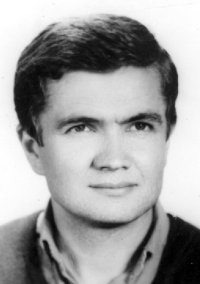
Stipan Jonjić, MD, PhD
Department of Histology and Embryology, Rijeka University School of Medicine, Rijeka, CroatiaStipan.Jonjic@medri.hr
Dr Jonjiæ received his MD in 1977 and PhD in 1985 at the Rijeka University School of Medicine. His field of work is viral pathogenesis and immune control. His main scientific achievements include the elucidation of the role of CD4 and CD8 T cell subsets and antiviral antibodies in the control of acute and latent cytomegalovirus infection. Since 1995 he has been a member of the National Scientific Council of Croatia. He is Professor and Chairman of the Department of Histology and Embryology, and, since 1999, the Dean of the Rijeka University School of Medicine, Rijeka, Croatia.
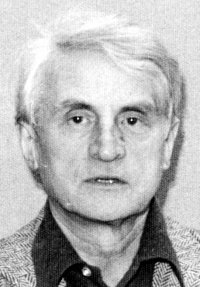
Krešimir Krnjević, MBCh, Bsc (Hons), PhD
Anaesthesia Research, McIntyre Medical Sciences Building, McGill University, Montreal, Quebec, CanadaKrnjevic@med.mcgill.ca
Dr Krnjević received MBChB in medicine in 1949, BSc (Hons) in physiology in 1951, and PhD in neurophysiology in 1953, all at the Edinburgh University (Scotland). Since 1995 he has been Associate Member, Anesthesiology Department, McGill University. From 1972 to 1978 he was Chief Editor of the Canadian Journal of Physiology and Pharmacology. He published 600 papers, especially on mechanisms of communication between brain cells (transmitters at excitatory and inhibitory synapses), control of neuronal excitability by internal Ca2+, and cellular mechanisms by which anaesthetics, oxygen, or glucose lack affect brain function. He is one of “The l,000 Most-Cited Contemporary Authors” (Current Contents, l982). Three of his papers have been rated “Citation Classics”.
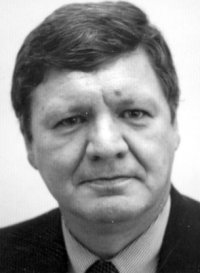
Boris Labar, MD, PhD
Division of Hematology, Department of Internal Medicine, University Hospital Center Zagreb, Rebro, and School of Medicine, Zagreb, Croatiahr.leuk.limf@leuk.hr
Dr Labar graduated from the Zagreb University School of Medicine in 1970, and obtained his PhD degree in 1982. His research area is hematology, acute leukemia and lymphoma, with focus on intensive chemotherapy and stem cell transplantation. His research team has organized and introduced into clinical practice the bone marrow stem cell transplantation, both allogeneic and autologous. It is presently developing so-called mini-transplants and routine monitoring of minimal residual disease after stem cell transplantation. Dr Labar’s team was the first (1989) to perform umbilical cord transplantation for a patient with Ph+ myelogenous leukemia. They also showed that anxious state may influence the incidence and severity of the graft-versus-host reaction.
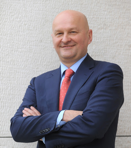
Stjepan Oreskovic, PhD
University of Zagreb School of Medicine, A. Stampar School of Public Health, Rockefellerova 4, Zagrebsoreskov@snz.hr
He is a tenured professor at the University of Zagreb School of Medicine and Chairman of the Center for Research and Promotion of Best HealthCare Practice. ProfesProfessor Oreskovic is the founder and director of the World Health Organization Collaborating Centre for HIV Strategic Information, working with experts, scholars, and policymakers from 105 countries. He has led a range of educational, research, and consultancy projects or taught at the London School of Economics and Political Science, the London School of Hygiene and Tropical Medicine, Bocconi, Indiana, Trieste, and Ljubljana University, as well as at L'Ecole Nationale de Sante Publique L’université Sorbonne-Paris-Cité. He is currently the Principal Investigator for the Global Grand Project "Varenicline Versus Cytisine for Smoking Cesation" comprising teams of clinical, behavioral and data science experts from Harvard Medical School - Massachusetts General Hospital, University of Ljubljana and University of Zagreb Faculty of Medicine. He is a Fellow at Harvard Medical School Department of Global Health & Social Medicine – Center for Bioethics (EXT) and at the Institute of Coaching McLean Hospital Harvard Medical School Associate. Professor Oreskovic is best known for his projects fostering innovative health care interventions in the area of tobacco control, obesity prevention, internet addiction and HIV surveillance. His projects were featured in the leading international media, including Huffington Post, The Economist, Reuters, CNN, BBC, NBC, and RTL, among others.
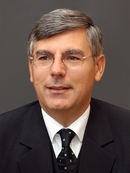
Željko Reiner, MD, PhD, FRCP, FESC
Division of Metabolic Diseases, Department of Internal Medicine, University Hospital Center Zagreb and School of Medicine, University of Zagreb, Croatiazreiner@kbc-zagreb.hr
Dr Reiner got his MD and PhD degrees at Zagreb University. Since 1988 he is full professor (tenure) at Zagreb university and his main interests are lipidology, pathophysiology of atherosclerosis - particularly the effects of sex hormones on atherogenesis, preventive cardiology, and clinical pharmacology. He was the founder and still is the president of Croatian Atherosclerosis Society, founder and vice-president of Croatian Obesity Society, founder of Croatian Hypertension Society and was Secretary general of the Croatian Medical Association. He was member of the WHO Executive board in Geneva, and chairman of the WHO Tobacco - free Europe Committee. He is president of Croatian Academy of Medical Sciences, full member of Croatian national academy of sciences and arts and chairman of it’s Atherosclerosis Research Committee. He is also member of the Congress Program Committee of the European Society of Cardiology, member of the European Atherosclerosis Society Executive Committee, European Joint Prevention Committee for Cardiovascular Diseases, Fourth Joint Societies’ Task Force on Cardiovascular Disease Prevention in Clinical Medicine (Guidelines committee) and is on editorial boards of several journals (Atherosclerosis, Europ J Cardiovasc Prevent Rehabil etc.).

Norman Sartorius, MD, PM, PhD, FRC. Psych.
Professor Norman Sartorius was Director of the Mental Health Division of the World Health Organization 1977-1993, Vice President and President of the World Psychiatric Association 1993-1999 and President of the Association of European Psychiatrists 200-2002. He is the author of more than 300 papers in peer reviewed journals and author, coauthor or editor of more than 60 books. He holds numerous honorary appointments and three honorary doctorates (in Umea, Sweden., Bath, UK and Prague, Czech Republic).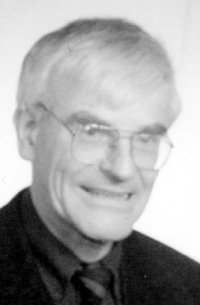
Hans Joachim Seitz, MD, PhD
Institute for Biochemistry and Molecular Biology, University Hospital Eppendorf, Hamburg, Germanyhjseitz@uke.uni-hamburg.de
Dr Seitz is the Head of the Department for Biochemistry and Endocrinology, Institute of Medical Biochemistry and Molecular Biology, University of Hamburg. His research areas are liver and organ metabolism, hormonal regulation of metabolism, and hormone action at the molecular level. He teaches medical students in all fields of biochemistry, endocrinology, metabolism, and nutrition. He has organized a number of courses for physicians in the field of nutrition, metabolism, and endocrinology in Germany, Croatia, and Bosnia and Herzegovina. He has coordinated the scientific and medical cooperation between the University of Hamburg and Zagreb (since 1986) and Sarajevo (since 1996). He is the Member of the Executive Committee of Inter-University Centre Dubrovnik for advanced postgraduate studies for all scientists.

Davor Solter, MD, PhD
Institute of Medical Biology Mammalian Development Laboratory, Singaporedavor.solter@imb.a-star.edu.sg
Dr Solter obtained his MD (1965), and PhD (1971) from the Zagreb University School of Medicine, Croatia. In 1991 he was appointed Director of the Max-Planck Institute of Immunobiology in Freiburg. He is currently European Editor of the Genes & Development and a member of American Academy of Arts and Sciences, EMBO, and Academia Europea. In 1998 he received March of Dimes Prize in Developmental Biology for pioneering the concept of imprinting. Dr Solter contributed significantly to many areas of mammalian developmental biology, namely: differentiation of germ layers, role of cell surface molecules in regulating early development, biology and genetics of teratocarcinoma, biology of embryonic stem cells, and imprinting and cloning. His current research interest focuses on genetic and molecular control of genome reprogramming and of activation of embryonic genome.

Marko Turina, MD, PhD
Clinic for Cardiovascular Surgery, University Hospital, Zurich, SwitzerlandMarko.Turina@chi.usz.ch
Dr Turina received his MD at the Zagreb Medical School in 1961. He was Surgical Resident in Flawil and Zurich, Switzerland (1962-1965). He was Assistant Research Surgeon, University of California in San Diego, CA, USA; Visiting Fellow in Surgery in Birmingham, AL, USA; Resident, Department of Surgery, University of Zurich; and Staff Member, Department of Surgery, University Hospital Zurich. In 1976 he became Head of the Division of Experimental Surgery at the University Hospital Zurich, in 1977 Professor of Clinical and Experimental Cardiac Surgery, and in 1982 Professor of Cardiovascular Surgery. Since 1985 he has been Professor and Director of the Clinic for Cardiovascular Surgery, University Hospital Zurich. He was Dean of the Medical Faculty, University of Zurich (1996-1998). He has been Editor-in-Chief of the European Journal of Cardio-Thoracic Surgery since 1993. His is also Principal Surgical Consultant, Hospital for Cardiovascular Diseases “Magdalena”, Croatia, and Professor of Surgery, University of Osijek, Croatia.

Mladen Vranić, MD, PhD
Prof. Vranić died on June 18, 2019 in Toronto. He joined the Croatian Medical Journal in 1995 as a member of the Advisory Board. In a -retrospective on his 50-year long career, Dr. Vranić quoted Robert Frost’s The Road Not Taken: “A scientist is always facing choices … focusing on specific areas of research, selecting students, fellows, and collaborators.“ May he rest in peace.Dr Vranić obtained F.R.C.P.(C) from the Royal College of Physicians and Surgeons of Canada; Honorary MD from Karolinska Institute, Sweden; and FRSC from the Royal Society of Canada, Academy of Arts and Sciences. His last positions were: Professor Emeritus of Physiology and Medicine, University of Toronto; Adjunct Professor of Medicine, University of Zagreb & Karolinska Institute, Stockholm; Member, Division of Endocrinology & Metabolism and Institute of Medical Science; Member, Banting and Best Diabetes Centre Executive Committee; Director, C.H. Best Foundation. His highest civilian Canadian honors: Officer of the Order of Canada, and Order of Ontario. His Academic selected honors: Laureate of the Canadian Medical Hall of Fame; Canadian Chamber of Commerce; Canadian Diabetes Association Inaugural Life-Time Achievement Award for leadership in diabetes research and contribution to the Canadian diabetes community. His research interests were diabetes and endocrinology; prevention of hypoglycemia in type 1 diabetics, using somatostation receptor antagonists; improvement of deficient glucagon, cortisol, and catecholamine responses.
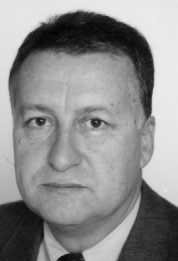
Hamza Mujagic, MD,MSc, PhD
hmujagic@yahoo.com
hmujagic@bwh.bvm@harvard.edu, Phone: 617 724 8973, 617 252 6125, Fax: 617 724 3166.
Dr Mujagic is Visiting Scholar at Massachusetts General Hospital and Harvard University, Institutional Review Board Member for Harvard University Cancer Center, Boston and Consultant for Xanthus Pharmaceuticals, Cambridge, Massachusetts, USA. He graduated from the University of Zagreb Medical School in 1968 where he also received his basic clinical training. He obtained his Masters degree from the University of Zagreb in 1973 and his PhD from the Universities of Essen, Germany and Zagreb in 1976. He received his specialty training in Internal medicine in Europe and from the University Medical Center in Sarajevo. He worked at Institute Rudjer Boskovic from 1969-1971 and Central Institute for tumors in Zagreb from 1971-1977, the National Cancer Institute of the USA in Bethesda from 1978-1979 and then from 1980-1984, at the Memorial Sloan-Kettering Cancer Center, New York, from 1984-1985, at the Universities in Banjaluka and Tuzla and on several occasions as a Visiting Professor at the Massachusetts General Hospital and Harvard University from 1998-2005. He currently lives in Boston, USA. He is specialist in Internal Medicine/Oncology and Professor of Medicine and Oncology. He published 97 research papers, is reviewer for several prestigious scientific journals and is cited around the globe. His areas of expertise are: Design and conduct of Clinical trials, Cancer Chemotherapy and Cancer drug safety.

Vedran Stefanović, MD, PhD
(Helsinki, Finland)
-born 1966. in Croatia; -MD degree Medical School University of Zagreb 1990; -several Dean Awards during scholarship; -researcher at Departments of Histology and Embryology, Medical School University of Split, Department of Pathology and Electron Microscopy, University of Helsinki, Finland 1987-1992; -PhD degree 1994, University of Zagreb, “Early differentiation of human pituitary gland”; -Licensed physician in Finland 1993, specialist in obstetrics and gynecology, University of Helsinki, Finland 2002, Specialist in Maternal and Fetal Medicine 2005.; -Current position: Senior Consultant dpt of OB/GYN, Helsinki University Central Hospital, Finland and Senior lecturer, medical School, University of Helsinki, Finland; -Research field: fetal hypoxia markers, member of EUPHRATES (EU group for prevention and treatment of postpartum haemorrhage)
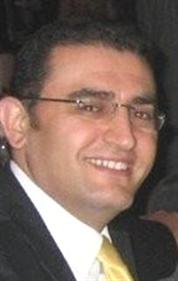
Mileta Golubovic, MD, PhD
Department of Pathology, University Center of Montenegro, Faculty of Medicine in Podgorica, University of Montenegro
Dr Golubović is Assistant Professor at the Faculty of Medicine in Podgorica and specialist in pathology at the University Center of Montenegro since 2000. His professional interest is focused on tumor pathology, particularly the analysis of neuroendocrine differentiation and prognostic factors in tumours. He has published a number of research articles in peer reviewed journals and lectured at research and professional meetings and congresses in the field of pathology, as well as e-learning. Dr Golubović teaches Pathology to medical and dental students, as well as at the School of Nursing of the University of Montenegro. He works as a supervisor or co-supervisor for a number of doctoral students.
Nepton Soltani, MD PhD
Department of Physiology Faculty of Medicine, Hormozgan University of Medical Science in Bandar Abbas, Iran
solnep2002@yahoo.com
Dr Soltani is Professor at the Department of Physiology, Faculty of Medicine at the Hormozgan Medical Sciences University. She teaches Endocrine Physiology for Medical Students at the Shahrood Medical Sciences University; Cardiovascular Physiology for PhD students of Nutrition at the Tehran Medical Sciences University; Respiratory and Endocrine Physiology for dental medicine students at the Tehran Medical Sciences; and Endocrine, Gastrointestinal, Respiratory and Renal Physiology for medical and dental students at the Hormozgan Medical Faculty. Her interests include endocrine system, diabetes, molecular mechanism involved in insulin and glucagon secretion, ischemia, smooth muscles, and endothelial cells.
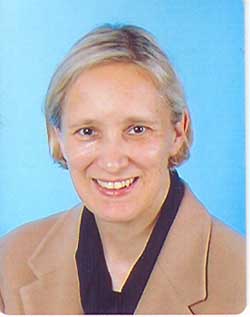 Lijana Zaletel-Kragelj, MD PhD
Lijana Zaletel-Kragelj, MD PhD
Department of Public Health, Faculty of Medicine, University of Ljubljana, Slovenialijana.kragelj@mf.uni-lj.si
Dr Kragelj is an Assistant Professor of Social Medicine at University of Ljubljana Faculty of Medicine. Her special field of work is epidemiologic/statistical methodology in which she is involved since 1984. For the last 5 years her main focus of research is relating to monitoring of health behavior among adult population. Since 2001 she is a national coordinator and main analyst in Slovenia CINDI Health Monitor Survey. In recent years she has established research collaboration with several public health centers as Andrija Stampar School of Public Health, Croatia, University of Bielefeld Public Health Faculty, Germany, KTL - National Health Institute, Finland; Kaunas University, Lithuania; and many others. She is an author of several scientific publications related to identification of population groups for various risky health behaviors.
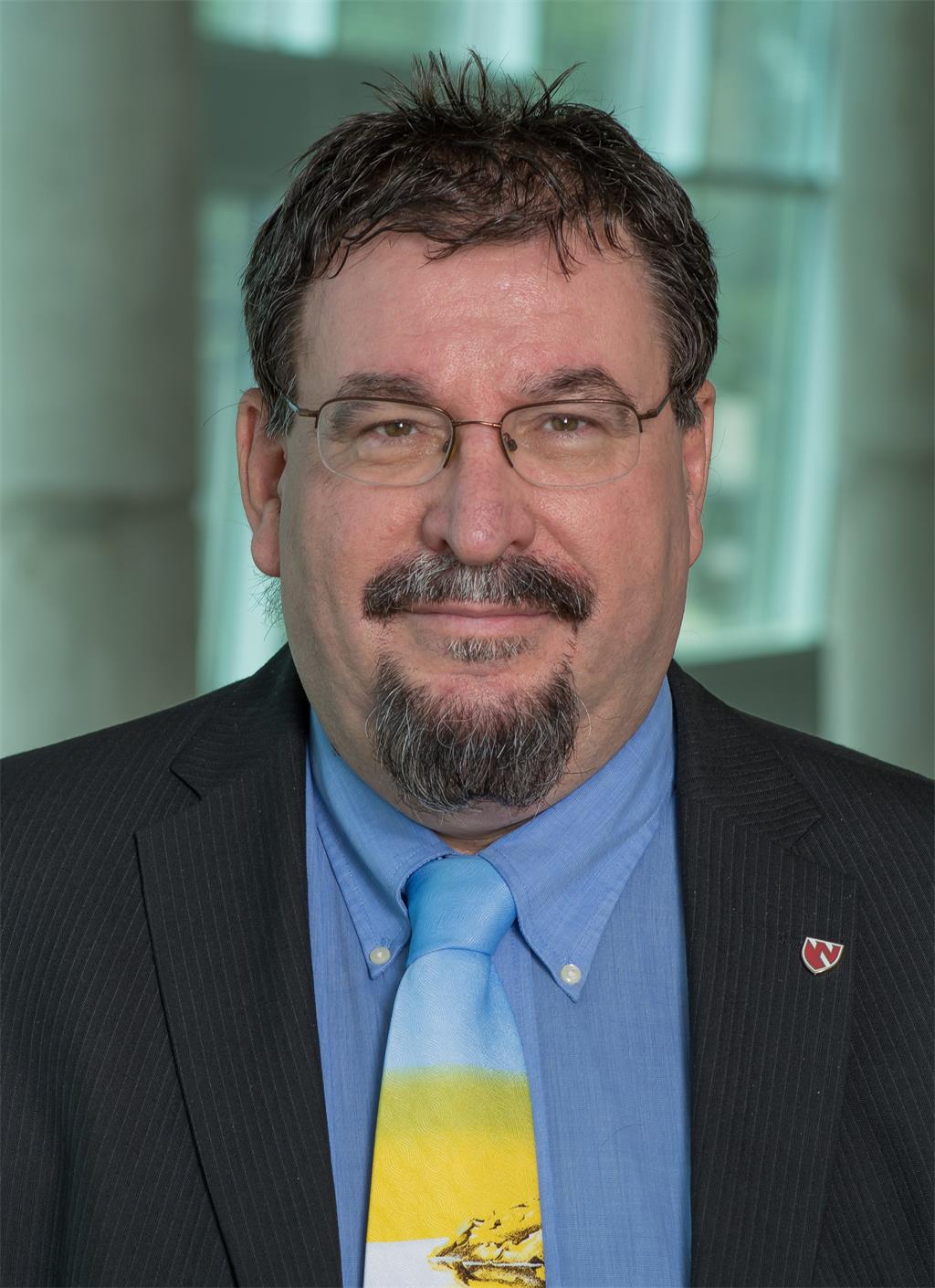
Károly Mirnics, MD, PhD
Director of the Munroe-Meyer Institute
Hattie B. Munroe Professor of Psychiatry, Pharmacology and Experimental Neuroscience, Biochemistry & Molecular Biology
University of Nebraska Medical Center, Omaha, Nebraska, USA.
Tatjana Rundek, MD, PhD
Evelyn McKnight Brain Institute and Miller School of Medicine, University of Miami, Florida, USA
Trundek@med.miami.edu
Dr. Rundek is a Professor of Neurology, Executive Vice Chair of Research and Faculty Affairs and Director of Clinical Translational Research Division in the Department of Neurology of the University of Miami Miller School of Medicine (MSOM). She is Scientific Director of the Evelyn F. McKnight Brain Institute at the University of Miami. Born and raised in Zagreb, Croatia, Dr. Rundek received her medical degree and neurology training at the University of Zagreb. She completed a neurology research fellowship at Columbia University in the City of New York, and was the first Fulbright Scholar at the Neurological Institute at Columbia University. Clinical research interests of Dr. Rundek include studying determinants of stroke, age-related memory loss and cognitive decline, and brain health. Dr. Rundek has published over 400 peer reviewed publications, editorials, book chapters, and has extensive collaborations with multiple national and international research teams on cognitive decline and dementia, and population-based studies of age-related neurovascular disease. She serves as a team scientist-leader of large international stroke genetic, MR imaging, and stroke projects and consortia. Dr. Rundek has been a member of Editorial Boards of Stroke, Neurology, Journal of Ultrasound in Medicine, Cerebrovascular Diseases. Dr. Rundek is President Elect of the Intersocietal Accreditation Commission (IAC) Vascular Testing Board of Directors, a US organization that accredits clinical nuclear/PET, MRI, CT and carotid stenting programs, and will become IAC President in 2021. Dr. Rundek serves on the American Heart Association South Florida Board and is a recipient of the prestigious AHA Cor Vitae for Stroke Award and In the Company of Women- Outstanding Woman in Science and Technology Miami-Dade award.











